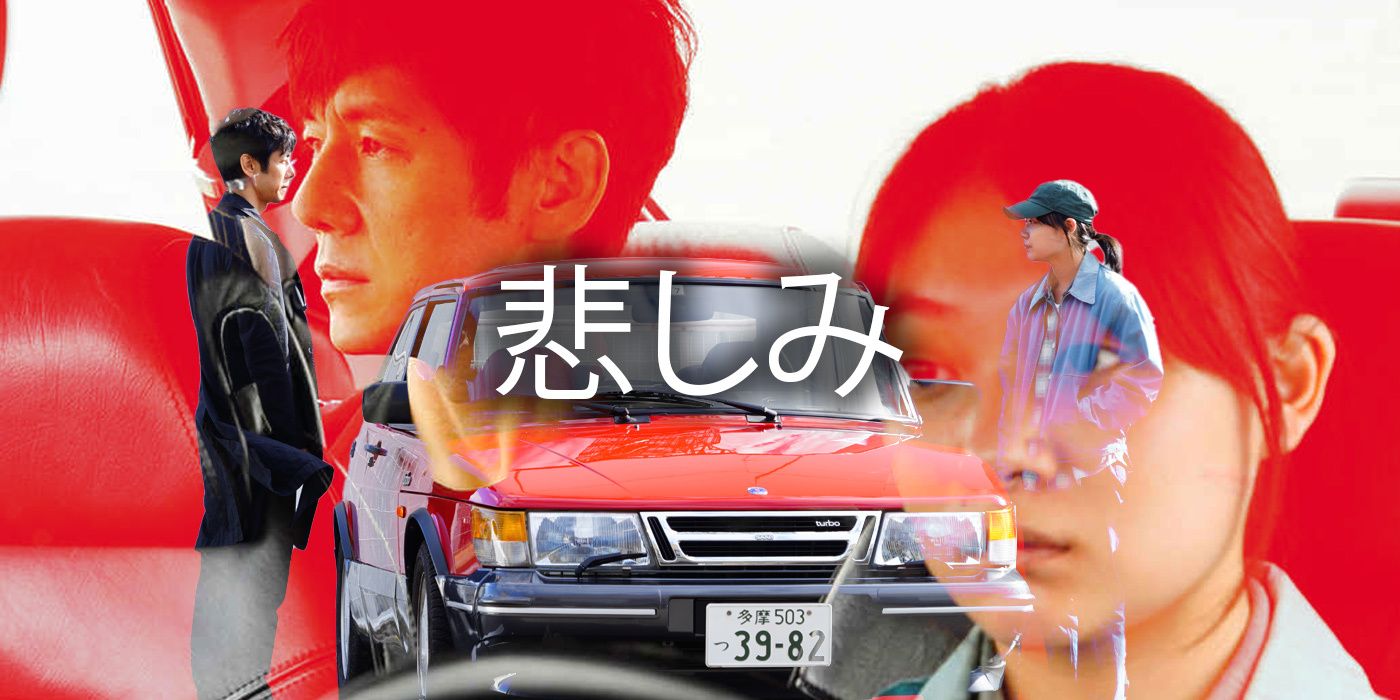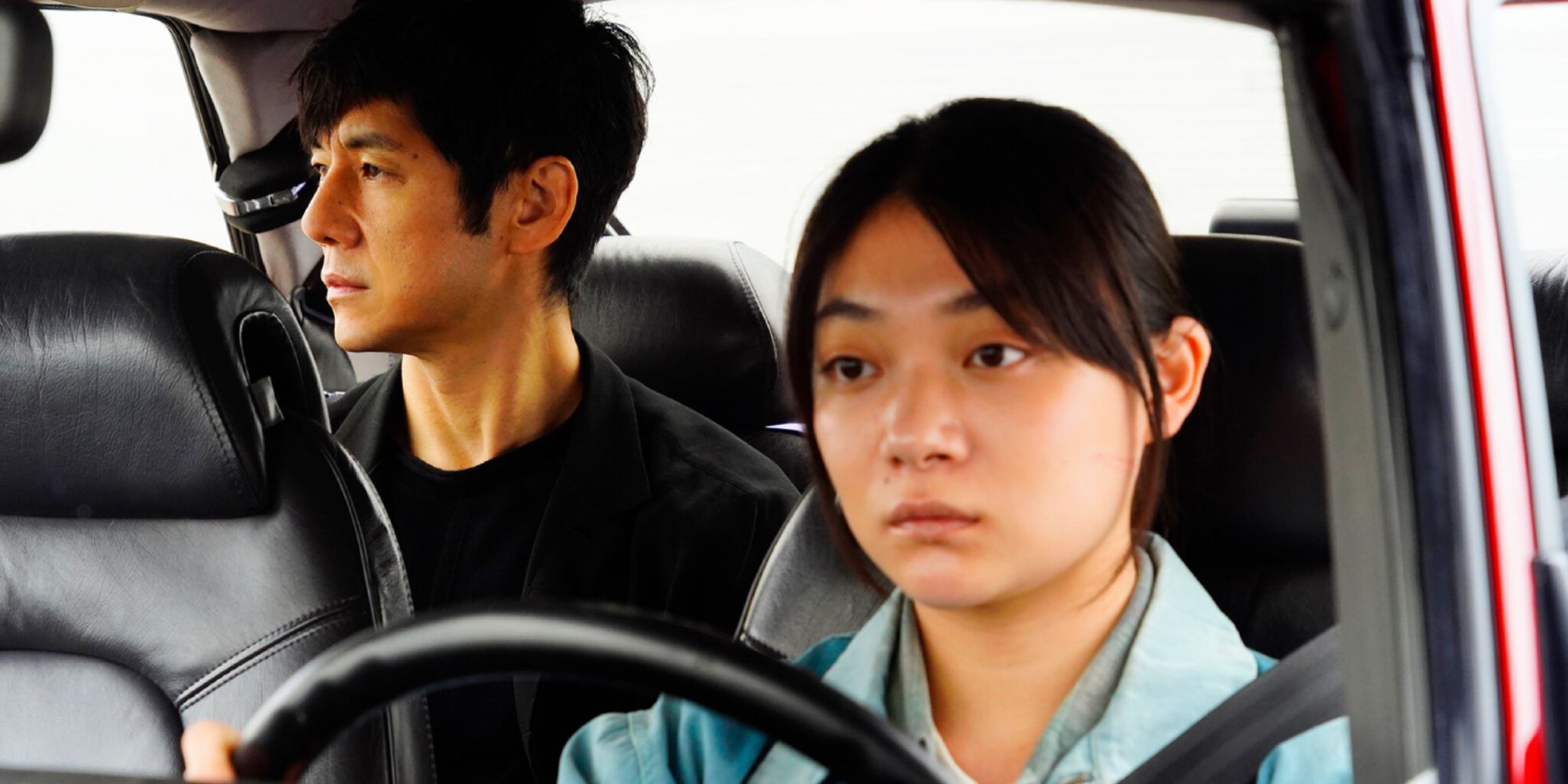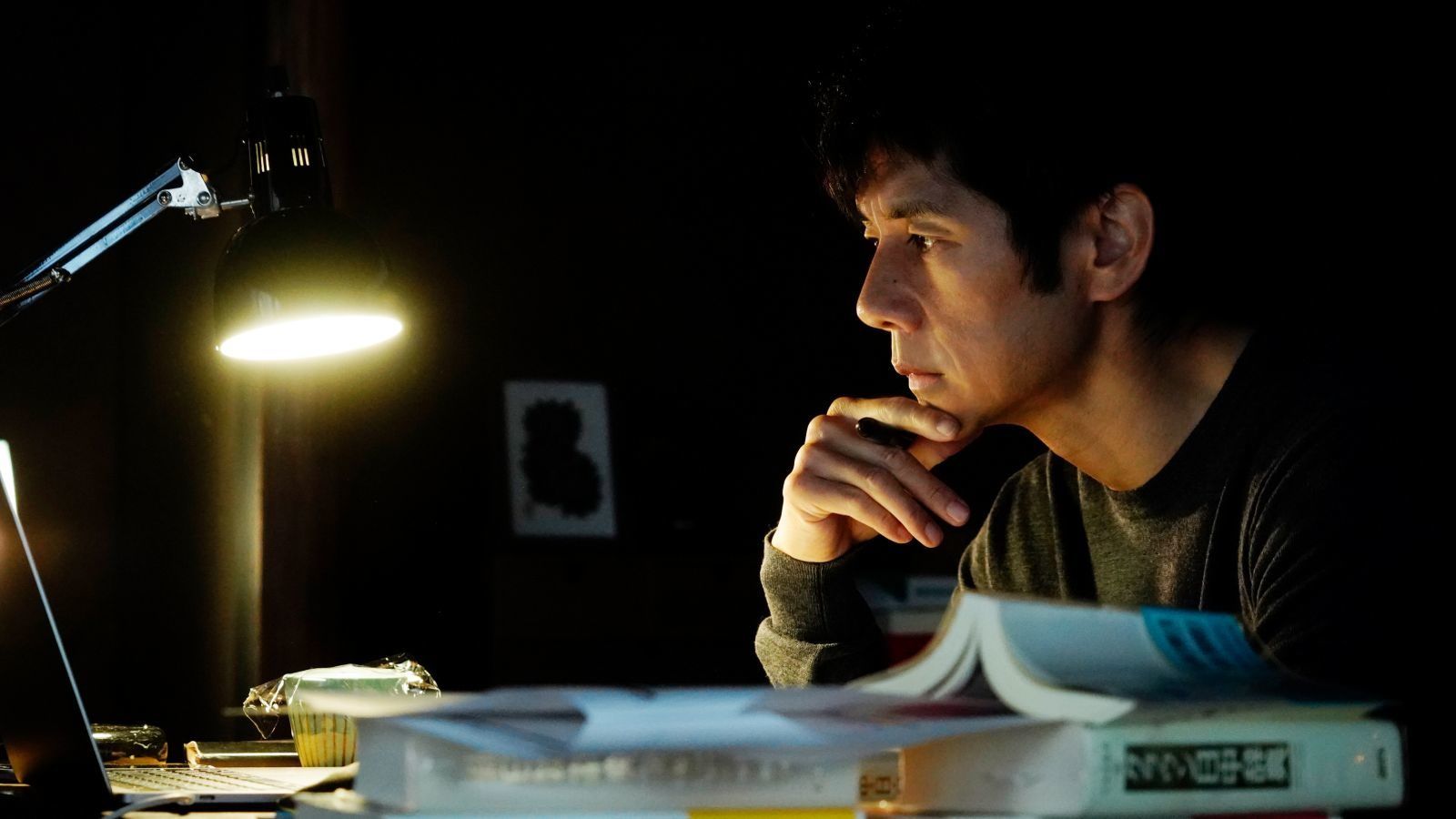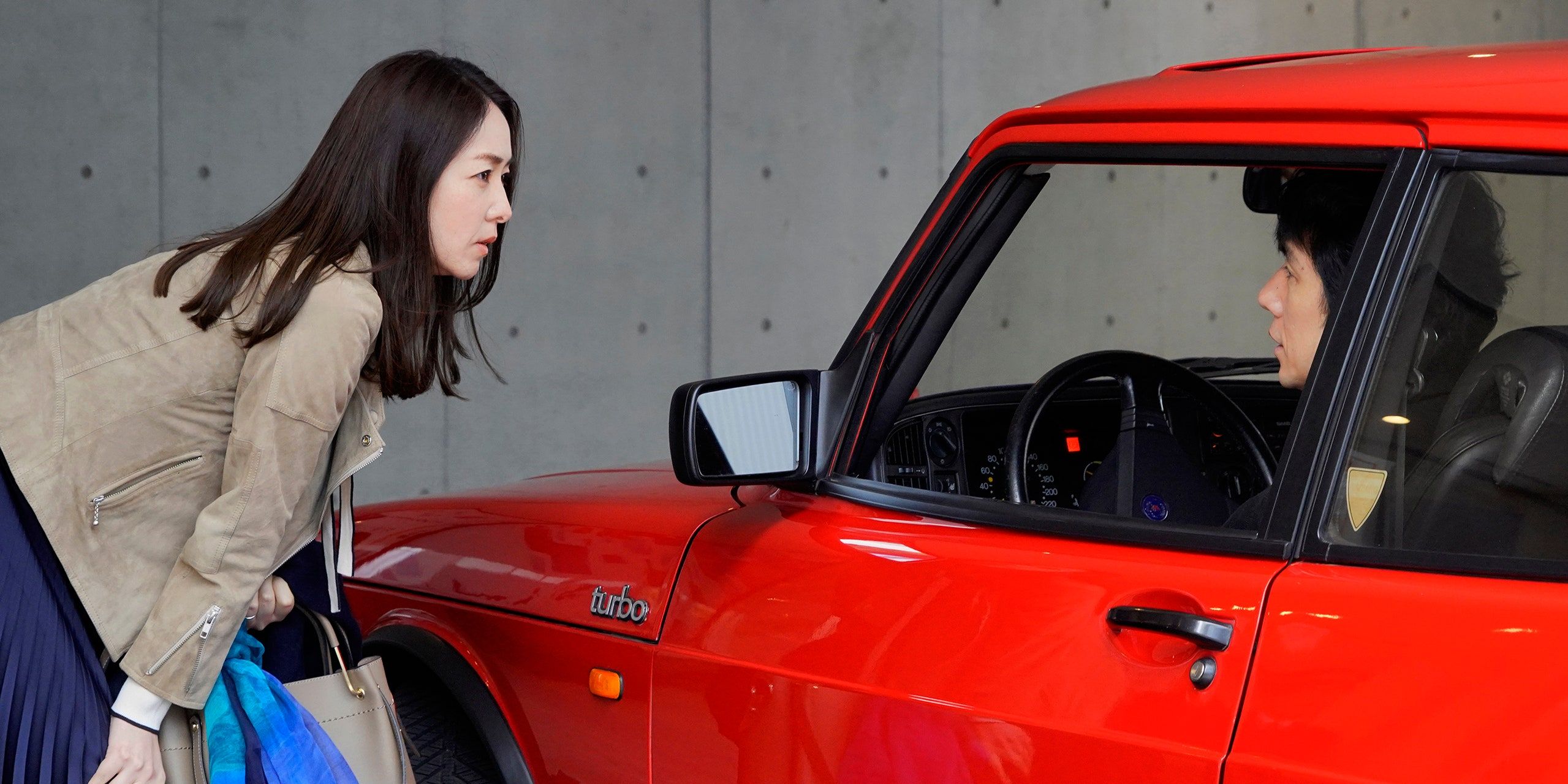Oscar winner for Best International Feature Film, Drive My Car is a lengthy, dramatic opus that uses its nearly three-hour runtime to examine with much dramatic restraint the complicated and pervading power of grief. Writer/director Ryusuke Hamaguchi works from a 30-page story from Haruki Murakami (and borrowing aspects of other works by the author) to craft his colossal tale, using the short narrative as a springboard to examine complicated themes of grief, trauma, guilt, and recovery. Steering its way through many revered international award ceremonies and picking up an impressive amount of accolades along the way, Drive My Car has proven itself to be a modern masterpiece whose artistic power is likely to last long into the future. Hamaguchi's film is a multi-layered and complex observation of the inherent difficulties of overcoming and living with grief.
The story is simple: Yusuke Kafuku (Hidetoshi Nishijima) is an acclaimed stage actor/theater director who discovers his wife Oto’s (Reika Kirishima) infidelity shortly before she unexpectedly dies from a brain hemorrhage. From there, Kafuku beings a long emotional journey that takes him through a diverse succession of emotions both high and low. As he begins work on a new production of Anton Chekhov’s play Uncle Vanya, he quickly realizes that the road to recovery — and acceptance — is lengthy and paved with unforeseen obstacles.
Drive My Car earns its three-hour length through its patient and slow-burning pacing that allows a thorough autopsy of its characters’ complicated and often conflicting emotions on their pain. A shorter runtime would demand for Kafuku’s initial discovery of his wife’s cheating to happen in the first few minutes of the film, but Hamaguchi and his co-writer Takamasa Oe allow their rocky relationship to breathe for a fair amount of the film’s length in order to help set up the emotional payoff that occurs when Kafuku finally begins to understand and accept his grief.
By establishing the Kafukus relationship as being deeply flawed and complicated, Drive My Car explains the grey area that frequently exists in the process of mourning a loved one. Their relationship wasn’t perfect. It doesn’t need to be. His pain is still valid, though confused through the convolution of his feelings towards his wife. Kafuku’s grief is largely shown, not told. He becomes unable to act in his stage performance of Uncle Vanya simply because it becomes too close to him. The performance opens up his emotional wound and doesn't allow it to properly heal. When he turns to direct a multilingual adaptation of the play, eventually casting his wife's lover in the role of Vanya, it becomes clear that his coping methods are still in effect. He drives around listening to a tape of lines fed to him by his wife. Does he just want to hear her again, or is he intentionally torturing himself as penance for not being able to save her?
Guilt plays a pivotal role in Drive My Car’s examination of grieving a loved one’s death. Late in the film, Kafuku reveals that on the night of his wife’s death, he intentionally drove around and avoided coming home. He was fearful of a discussion that Oto had requested, likely concerned that she would confess her infidelity—or even request a separation. Had he returned home at an appropriate time, it’s possible that his wife could have been saved. He is trapped in the mucky feelings of guilt as he blames himself partially for her death.
Although Kafuku’s plotline takes the center stage in the film’s narrative, the overall thesis is reinforced through the introduction of Misaki Watari (Tōko Miura), Kafuku’s taciturn chauffeur provided by his theater company. As the film progresses, she provides increasingly candid tidbits about her life and her decision to pursue her vocation as a chauffeur. When Watari was younger, her mother died in a sudden mudslide that left her suddenly without any parents. To complicate her emotional baggage tied to this death, it’s later revealed that Watari’s mother was cruel and abusive. She was also mentally ill, being afflicted with an identity disorder that created a childish, infrequently-appearing personality that was loving and kind to Watari. She understands that her mother was a victim of her illness, but she also remains victimized by her mother’s abuse. Like Kafuku, Watari gives the impression of having a deep sense of unspoken melancholy, and like Kafuku she works on suppressing her emotional trauma in order to continue her life.
Because of her mother’s abuse, Watari’s feelings towards the untimely death are muddled. Like Kafuku, Watari gives the impression of having a deep sense of melancholy, and like Kafuku she works on suppressing her emotional trauma in order to continue her life. Her mourning of her mother is similarly complex, too: she partially blames herself for the death due to her reluctance to help. Since she had escaped the mudslide unharmed, she plausibly had the opportunity to help rescue her mother from the wreckage. Yet, partially out of fear and partly out of contempt for her mother’s abusive behavior, she withheld. Consequently, her mother died. She didn’t cause the mudslide itself—she certainlly didn’t kill her mother—but by not helping, she had plagued herself with feelings of remorse in allowing her mother to perish. Like Kafuku, her relationship with the departed is undeniably complicated. Even if her mother was often cruel and abusive, she is traumatized by her untimely death.
The inclusion of Oto’s lover Koji (Masaki Okada) increases the complications of Kafuku's grief. While Kafuku is certainly mourning the literal death of his wife, he's also mourning the decay of the marriage itself, which was clearly in a fragmented state. Kafuku largely blames Koji, projecting much of his pain onto the young actor. He intensely criticizes Koji’s performance, scrutinizing every detail. He is angry, understandably so. When the two share a lengthy car ride near the end of the film, Kafuku beings to understand that there’s much to Oto that he didn’t know. Koji reveals the end to one of Oto’s stories that Kafuku hadn’t known. Since Oto seemingly only told these stories after having sex, it’s all but proven to Kafuku that the two had been having an affair after all. Yet, he understands that Koji also loved Oto and that the two’s relationship was itself complicated. His contempt for Koji doesn’t suddenly vanish, but it definitely changes course. As with the cryptic, deeply metaphorical story told by Oto, Kafuku understands that his wife was somewhat enigmatic. She couldn’t be so easily understood as being cruel in her infidelity. There was something more to it, something more complicated.
Running through the film is the theme of art and work as therapy, as well as the theme of art being something inherently emotional. Even more than a passion or a manner of making a living, Kafuku utilizes his theater directing as a method of therapy. He's trying to understand his own grief through the play, making sense of his complicated emotions along the way. He can disapprove of his wife's affairs and mourn her no less as a consequence. Recovery takes time, and Hamaguchi’s film gives the character the time he deserves to come to the emotional realizations that he needs. In the film’s penultimate scene, Kafuku is seen returning to the stage in his troubling role of Uncle Vanya, but he's shown to be in anguish as he overcomes the obstacle that he couldn't previously clear. If he's more accepting of his pain, the pain still exists. His ability to preserve doesn't equate to his grief ending; instead, he's able to make sense of it, live with it, and even use it to his benefit.
Drive My Car also shows the uncertain path to overcoming grief. Thanks largely to a moment of emotional profundity for both Kafuku and Watari, the characters are able to understand their pain, and they're largely able to overcome it. The two are brought platonically together through their professional relationship, but it’s only through their shared emotional trauma that they’re able to truly connect. Both of them are wounded by their uncontrollable grief, and each of them is plagued by a sense of guilt that convinces them that they could have saved their respective departed. Each has the outside perspective to see that the other can’t truly be held accountable for their actions. Kafuku couldn’t have known that his wife would have a brain hemorrhage, and Watari in her youth couldn’t likely have actually saved her mother.
When the film culminates in a revelatory climax at Watari’s childhood home in Hokkaido, the two characters are finally allowed some relief from their pain. They are able to confront it bluntly, and through each other’s help are they able to understand: two contrasting things can be true at the same time. Watari can hate and love her mother, and her mother can be both abusive and caring. Oto can both love Kafuku and desire other men, and he can be both heartbroken and apologetic (“I want to yell at her for lying to me all the time. I want to apologize for not listening,” he says, in the masterful scene). Their grief does not negate the pain they felt when their respective loved ones were still alive, nor does their being hurt lessen the impact of their sudden mourning. Hamaguchi’s skill is undeniable with this climactic scene — it’s profound in its realizations and poetic in its near-silence, and through utilizing long, uninterrupted shots the much-deserved emotional release is made more powerful. Without an excess of cuts or musical cues, the resonance is dependent on the skill of the actors, and each of them fully delivers.
Like much of the work of Haruki Murakami, Drive My Car is haunted by the metaphorical ghosts of lost loved ones. Kafuku and Watari bring their departed with them wherever they go while nonetheless remaining scarred by wounds inflicted when their loved ones were still living. It's a brilliant, profound film whose resolution is patient in its arrival. It is emotionally resonant, thoroughly examining the inherently complicated nature of overcoming grief. There is something universal to its message: of a person, two conflicting things can be true at once. Emotions, too, can be contradictory, and one feeling doesn't negate or invalidate another. Grief is a long, winding road paved with many obstacles, the journey convoluted by these contradicting emotions, even if the destination remains the same.





